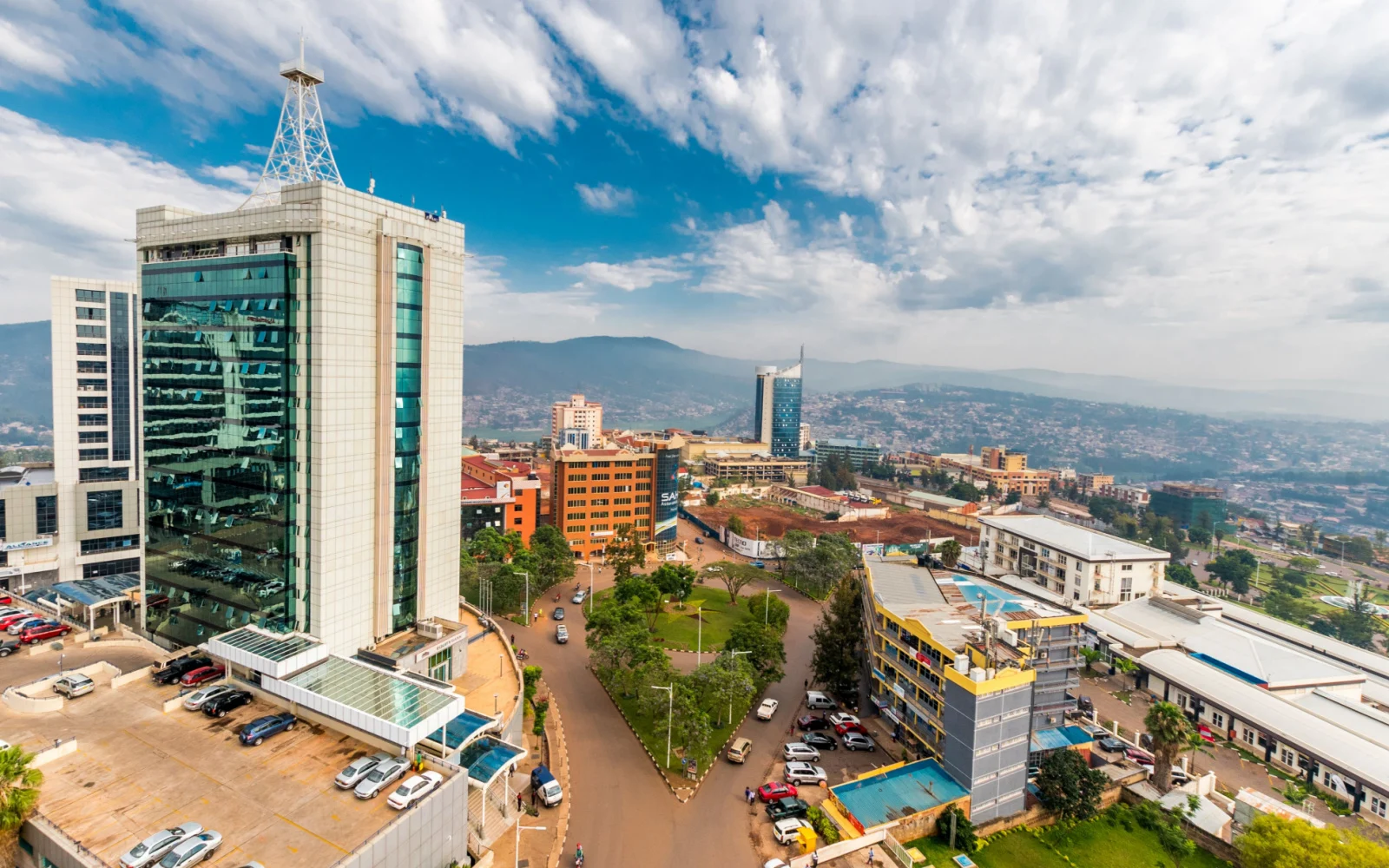Is Rwanda safe to visit in 2026?
Rwanda is considered one of the safest places to visit in Africa. Despite a tragic history marked by the 1994 genocide, the country has made remarkable strides in terms of safety and security.
International travel advisories generally rate Rwanda as safe, with a low crime rate, though some concerns arise from sporadic incidents, primarily in border areas where conflicts from neighboring countries can sometimes spill over.
The small country of Rwanda in East Africa is fast becoming a tourism powerhouse. The country sees about 1 million international arrivals each year, no small feat for such a small place.
Rwanda’s beautiful nature is one of the main reasons why people visit the country. The country has some of the best opportunities in the world to get close to gorillas on gorilla trekking excursions and see their spectacular habitats in the cloud forest.
The country also has beautiful national parks, including Volcanoes National Park and Virunga National Park. In the capital, Kigali, you can check out a great gallery scene, cute cafés, and more somber attractions such as the Kigali Genocide Memorial.
But while it’s rich in culture, history, and amazing natural beauty, is Rwanda safe to visit? Here’s our take.
Is Rwanda Safe to Visit in 2026?
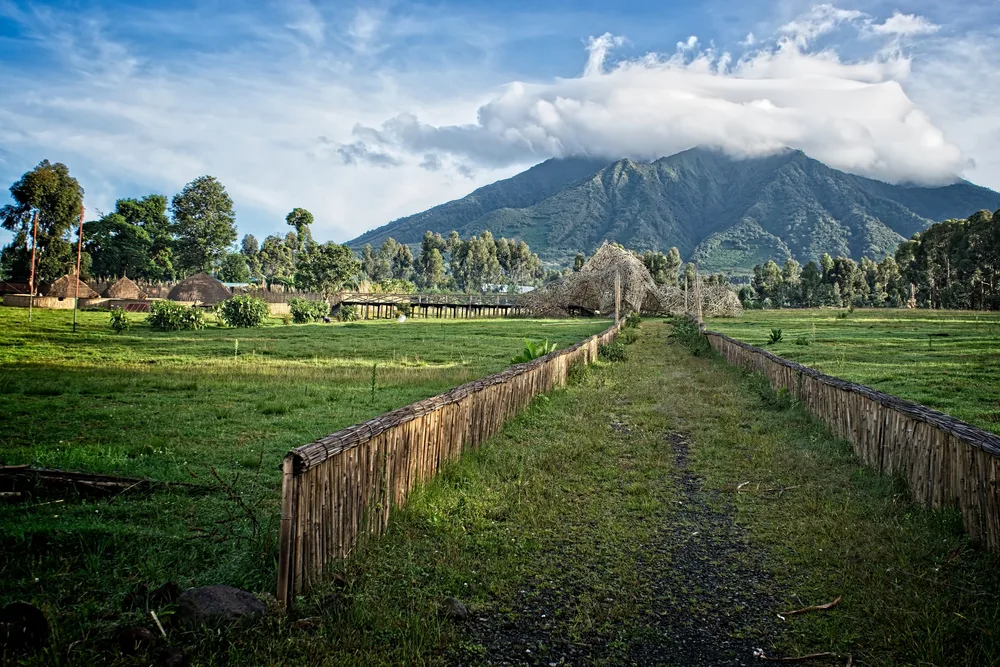
Volcanoes National Park, Rwanda – 2017, April 21 : The trekking path on the slopes of the mountain leading into the thick forest towards the gorilla families, lenticular cloud/Radzimy/Shutterstock
Yes. Today, Rwanda is one of the safest places to visit in Africa. The genocide is long over, although some scars remain, and conflict from neighboring countries sometimes spills over into Rwanda.
Although crime does happen in Rwanda, the country has a much lower crime rate than many of its African neighbors. International travel advisories tend to agree in their assessments that Rwanda is a safe place to visit.
For example, the United States just places Rwanda under a Level One travel advisory, the lowest possible level. That means that Rwanda is safe to visit, although you shouldn’t check your common sense at the airport gate.
Many people are concerned about visiting Rwanda because they are aware of the country’s horrific past. In 1994, the country was gripped by a genocidal war for 100 days as Hutu extremists slaughtered 800,000 members of the Tutsi minority.
It is difficult for any nation to recover from such horrific events, and the Kigali Genocide Memorial shows a small part of the devastation the country experienced.
Today, Rwanda is ruled by President Kagame, who led the RPF militia that ended the genocide. The country has come a long way from its darkest days (although some people criticize Kagame for his authoritarian leanings).
Today, it is illegal to discuss ethnicity in Rwanda to try and forestall the genocide. There are occasional clashes, such as attacks on genocide memorials.
However, there is no longer active conflict in Rwanda. The country sometimes suffers from being in a dangerous neighborhood as conflict from neighboring countries, such as the Democratic Republic of the Congo, often bleeds over the border and into Rwanda.
Outside of border areas, which should be avoided due to the risk of skirmishes, you are unlikely to encounter crime in Rwanda. Unlike in many neighboring countries, crime in Rwanda is fairly rare.
Common crimes include:
- Pickpocketing
- Bag snatching
- Theft from vehicles
Outside of more unstable areas, where armed attacks can occur, Rwanda is very safe to visit. One thing you should be mindful of when planning your trip to Rwanda is the rainy season.
This season lasts from March to May. The heavy rain sometimes causes flooding and landslides, especially in more remote areas (plus, it’s not very pleasant to go gorilla trekking when it is pouring). You may want to time your visit to occur another time.
Crime in Rwanda
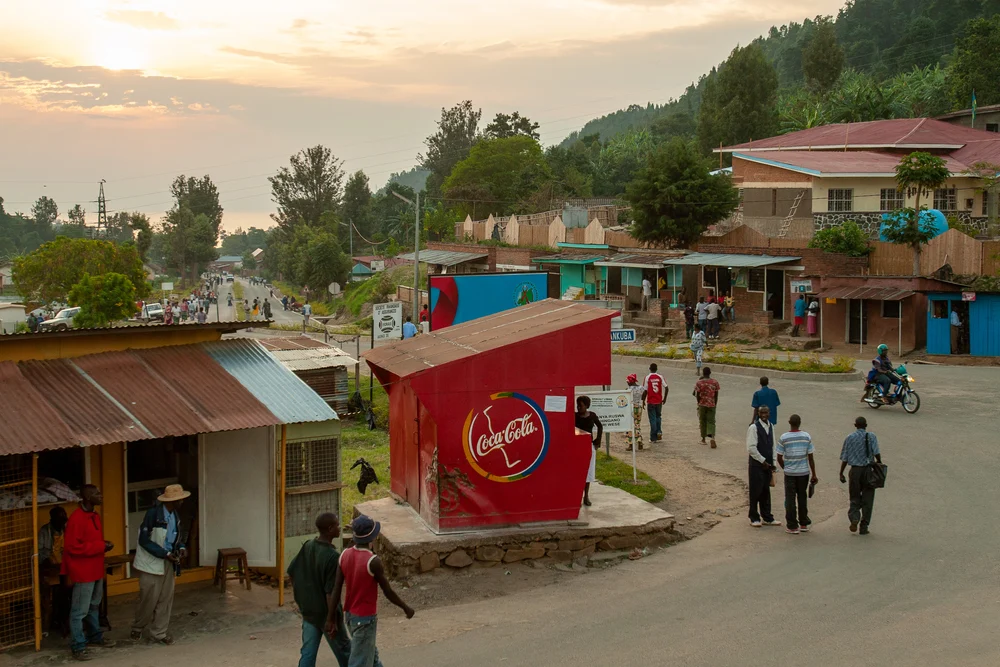
Kibuye, Rwanda – august 2008 – Kibuye small village Lake Kivu Rwanda Africa/MilanoPE/Shutterstock
Many African countries have a reputation for being unsafe, in part due to their high crime rate. However, Rwanda is different. Its crime rate is low to moderate, especially its violent crime rate, but tourists are rarely affected when they visit.
If you aren’t sure about this claim, a quick look at crime statistics can help you see what is going on. According to World Bank data, the homicide rate in Rwanda is four incidents per 100,000 people (with slight fluctuations from year to year).
This is a moderate homicide rate and below the global average. This homicide rate also shows how far Rwanda has come from the days of the genocide in 1994.
The rate of other crimes is also fairly low in Rwanda. For example, the assault rate is 30.5 incidents per 100,000 people. The rate of robbery, another common violent crime in other African countries, is 25.6 incidents per 100,000 people.
The rate of property crimes in Rwanda is higher than the rate of violent crimes. However, even the property crime rate is fairly low when compared to many other countries around the world. For example, the burglary rate is 21.8 incidents per 100,000 people.
Anecdotally, people who’ve visited or lived in Rwanda say that they felt less at risk of theft than in many other parts of the continent. Visitors to Rwanda tend to feel safe there.
According to Numbeo, Rwanda scores 23.8 out of 100 on its crime index, which is calculated based on respondent data. People report low or very low levels of most categories of crime and that they feel safe walking around the country during the day and even at night.
There are a few reasons why Rwanda has a much lower crime rate than many of its neighbors. It has a highly efficient police force and military.
The government has also spearheaded several anti-corruption initiatives within the past few years that targeted the police. Rwanda also has very harsh penalties even for minor offenses that deter potential offenders.
It also helps that Rwanda has fewer social factors that contribute to crime. Since 1994, it has been politically stable (some might argue that this is a drawback since the same man has been president since 2000).
It is also a middle-income country with less poverty, unemployment, and inequality than many of its neighbors. The Organized Crime Index somewhat complicates this positive view of Rwanda’s crime statistics.
According to the watchdog, corruption is widespread, as well as trafficking. It also criticizes the Rwandan government for not being transparent enough about crime.
However, Rwanda still ranks as the second safest country in Africa, according to the index. Plus, most of the problems mentioned here almost never affect tourists or foreigners.
You should still take precautions to protect yourself when traveling in Rwanda, especially when visiting more remote regions of the country where crime may be easier to get away with than in the capital city of Kigali. However, crime is not a major concern for most visitors.
Petty Theft
If you do wind up experiencing a crime in Rwanda, it will probably be petty theft. That being said, the UK government mentions that the crime rate, including theft, is low in Rwanda.
Petty theft incidents in Rwanda can include pickpocketing, bag snatching, or scams. Although theft can occur pretty much anywhere, it is most common in Kigali, the capital and largest city.
Pickpockets tend to operate in crowded areas, including on shared taxis and public transportation. It’s a good idea to keep a close eye on your valuables wherever you are in the world, including in Rwanda.
Don’t show off lots of cash or expensive items such as jewelry, as those single you out as a target for thieves. Instead, keep everything that you consider valuable in a safe place, such as a zipped cross-body bag or inner pocket.
Keep irreplaceable items in a hotel safe (or, better yet, leave them at home). Although Rwanda is fairly safe even at night, you should still avoid wandering around unfamiliar areas alone after dark as that increases your likelihood of theft or robbery.
According to the Australian government’s travel advisory for Rwanda, theft from vehicles is another common form of petty theft in the country.
Thieves will take items from cars that are unoccupied or smash and grab valuables from people sitting in traffic. Whenever you are in a car, make sure that your valuables are out of sight.
When sitting in traffic, make sure you hold onto your bags. When you park the car, take your bag with you. Just making sure that the doors are locked helps prevent theft.
Burglary
Burglaries and break-ins sometimes occur in Rwanda, especially in the capital, Kigali. The Canadian government mentions that house break-ins can occur in the city, as well as hotel room break-ins.
Whatever your accommodation situation, you should take precautions to prevent this crime if you want to come back with all your valuables intact. The precautions you should take to prevent break-ins are fairly straightforward.
Just make sure that you always lock your doors and close your windows before leaving your accommodations. You’d be surprised at how many break-ins take advantage of people’s carelessness.
If you are staying in a hotel, make sure that you never leave your valuables lying around in plain sight in the room, as they may prove too tempting. Either use the room safe, if one is available, or hide important items in a secure location.
If there is a “Do Not Disturb” sign, use it during your stay to prevent someone from entering your room unwanted.
If you are staying in Rwanda more long-term, you may think about different ways to protect your house from burglary, but if you are just visiting as a tourist, these basic precautions are usually enough to deter crime.
Avoiding Bad Areas
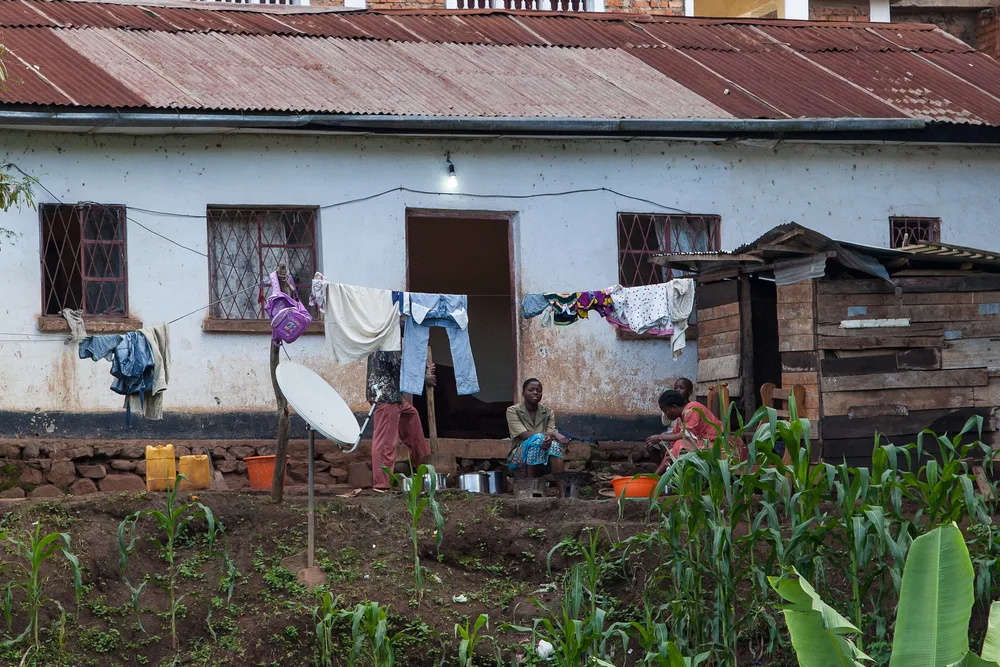
Bukavu, Democratic Republic of the Congo – January 2013: African family sitting in front of their house on the boarder of Rwanda and DR Congo/Katja Tsvetkova/Shutterstock
There are some regions of Rwanda that are more dangerous, and most governments issue travel advisories to get their citizens not to go there or at least to reconsider travel to those regions.
Avoid the border region with the Democratic Republic of the Congo and the border region with Burundi. Conflict in these neighboring countries has a risk of spilling over the border.
Some of Rwanda’s most famous national parks, such as Volcanoes National Park, are located in the volatile border regions and have been sites of armed clashes before. However, if you go with an organized tour group, it should be safe to visit.
Things to Consider
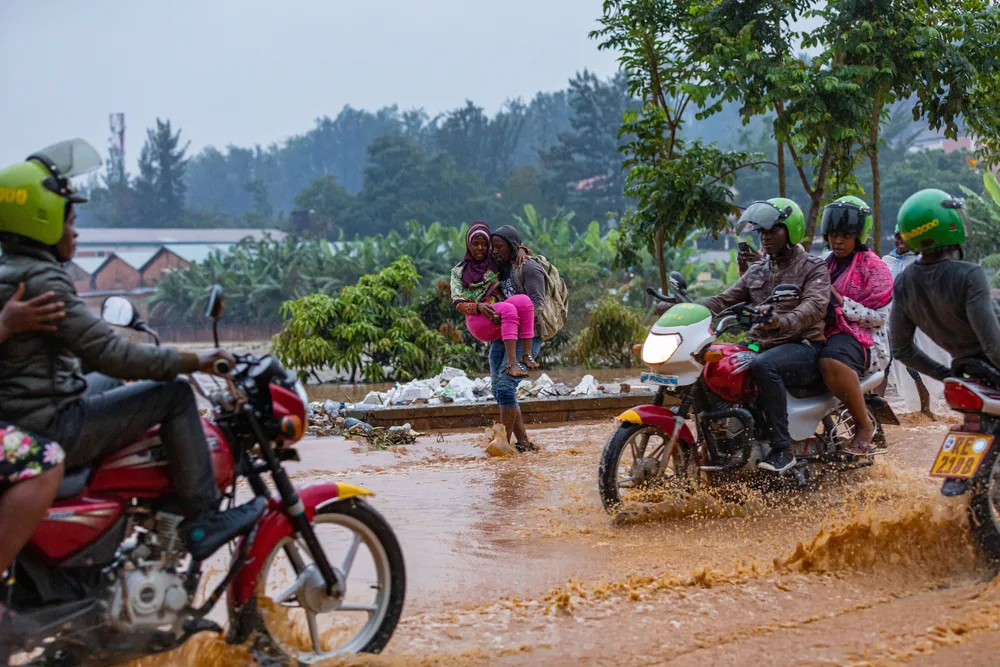
KIGALI, RWANDA – January 28, 2020: Pedestrians and motorists risk their lives to transport passengers in a flooded road. Photo by Emmanuel Kwizera/Emmanuel Kwizera/Shutterstock
Here are a few additional safety tips for visiting Rwanda:
- Avoid political comments. The government of Paul Kagame has been accused of human rights violations and targeting dissenters. You don’t want to endanger yourself or any of your local companions by criticizing the government.
- Follow the laws carefully. Minor offenses such as drug possession can carry hefty jail sentences, and the Rwandan legal system is known for its strictness.
- Be mindful of off-limits government areas. Obey any posted warning signs, and don’t walk into forbidden areas. Photographing government buildings is illegal.
- Avoid protests, which sometimes happen in Kigali. They can turn violent, and you may get arrested if police think you are involved. Some demonstrations have been targeted with grenades before.
- Major roads are generally good, but more remote roads are not always well-maintained. Plus, Rwandans drive fairly recklessly. Shared taxis and mini-buses are the most common method of getting around the country, but they are also prone to accidents.
Frequently Asked Questions
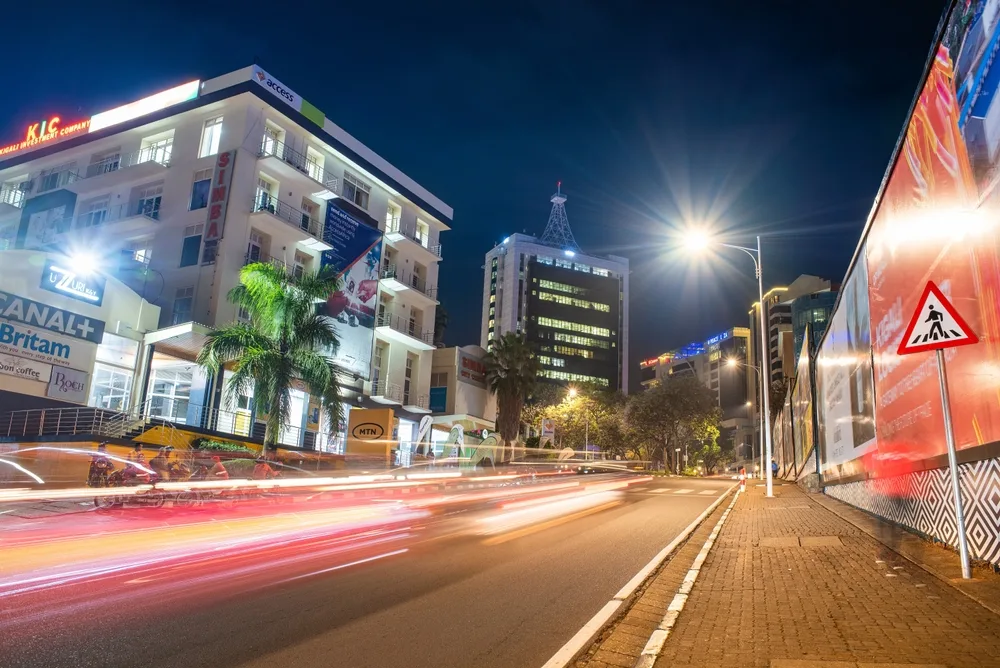
Kigali, Rwanda – August 19 2022: The centre of Kigali at night. The city is a hive of activity in the evenings/Jennifer Sophie/Shutterstock
Here are some other common safety questions people have asked before visiting Rwanda:
Is Rwanda safe for white people?
Rwanda is safe for people of all races and ethnicities. In fact, discussing ethnicity is illegal in the country. People are also used to foreigners since there have been so many foreign aid workers since the genocide.
Is Rwanda safe for females?
Female travelers generally have good experiences in Rwanda as the level of violent crime is low. However, you should still take some precautions as a woman traveling in Rwanda.
Is it safe to walk around Kigali, Rwanda?
Kigali, the capital, is safe to walk around — if you can navigate the traffic. However, don’t get too reckless and go exploring unfamiliar areas at night.
So, Is Rwanda Safe to Visit?
Despite its tragic recent history, Rwanda is a safe place to visit today. It has stability and a low crime rate. You should still take care not to break local laws or be careless with your valuables, but visiting the country safely is very possible. Happy travels!



